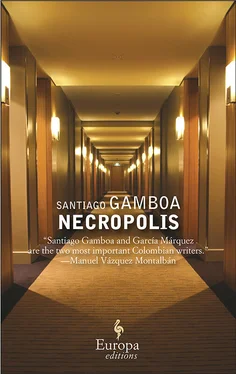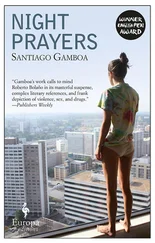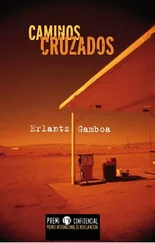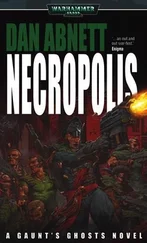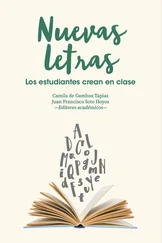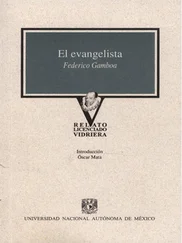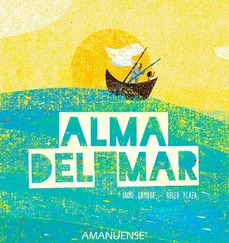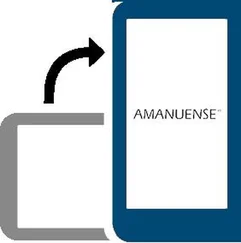Supervielle paused, so I said: the fact that others envy you is a confirmation of your talent, it shows that you’re on the right track, don’t you think? from that point of view it’s something positive, trust me, although I’m unacquainted with envy, nobody plays tricks on me or puts a spoke in my wheels, which must mean that people are indifferent to me.
It seemed strange to be involved in such a discussion in that huge hangar, with the sound of bombs in the background, and waiting for a plane to evacuate us.
An interesting point of view, said Supervielle, and one I have already considered, but I confess, one gets tired of the fact that time and time again the results we hope for do not come, it has happened too many times in the history of thought and culture that the genius of exceptional people is unrecognized because of the stupidity and limited vision of their contemporaries, but what can we do if we live surrounded by idiots and simpletons? I know that poetic justice will save us eventually, but when we are already ash and mineral remains, as might happen to this city if things don’t change, but at least let me tell you that although I was dissatisfied, I do have one reason to be happy, and that is the promise of a contract with Tiberias, one of the most important publishing companies, in whose catalog any student of the past, indeed any writer, dreams of appearing, given the range of subjects it handles; he is a hard but upright man, in love with knowledge, sensitive and with good taste, in short, a true Renaissance man, so at least I will have that consolation.
I said: that’s excellent news that cancels out the other things, I know perfectly well what it means to be with Tiberias, it’s a privilege to share a publisher with so many great men, but I’m curious about one thing, which of your titles is to be translated and published by Tiberias? and Supervielle replied, well, I’m still not very sure, several of my books are being read in his office, but I assume it will be the one that tells the story of the chess players, because that was what finally made Mr. Lottmann’s mind up; he was very impressed with my talk and before I had even finished, he had already called his office from the hall, to tell them to put my books in a special place, because he wanted to consider them personally, so there you are.
Momo had stepped forward to talk to one of the soldiers in charge of the evacuation and tell him that our group was from the ICBM. Jessica and Egiswanda sat down on a bench. They continued talking in low voices, with their heads very close together, which made me think that they had already discovered what united them, so I preferred not to disturb them. Suddenly a Hummer appeared in the hangar, advanced to the middle of the runway, and parked next to a small private jet I hadn’t seen before, which had three letters painted on its back part: EVE. Immediately, Sabina Vedovelli and her husband got out of the Hummer and walked up the steps, and the plane left.
In the next transport, Kosztolányi and Kaplan arrived, together with other delegates who had decided to leave — others preferred to wait, to stay a little longer. Kosztolányi came over and hugged Supervielle; he said that on the way they had seen horrible things, an inferno of destruction, pieces of bodies flying through the air, people running in flames, human torches, wounded people lying on the streets, mutilated bodies. That’s war, said Supervielle, nothing more, nothing less.
The soldiers had told us that there were two possible destinations for the planes: one was the city of Haifa and the other Nicosia, in Cyprus. I assumed we could get in either, because the important thing was to get out, so I wrote our names, mine, Jessica’s and Egiswanda’s, on a piece of paper and gave it to the lieutenant.
I went to say goodbye to Kaplan, who was standing in another of the lines, looking very pale. When he saw me, he said, oh my God, these things follow you all your life. To think that what I most like is to have lunch in peace with my family and spend the afternoon reading history books, I don’t know what brought me here, or rather, yes, I do know and that’s why I came, but now I’m glad to be leaving, I never thought I’d say that about leaving this city. But I’m accustomed to departures, my friend.
Can I ask you if your story is true? I said, and he replied: Oh, all stories well told are true, that’s my motto, but please don’t think I’m arrogant; to be honest I don’t know if it was all right and I don’t even really want to know, I like that story and that’s why I tell it. Don’t forget it and, if you can, tell it one day yourself. It’d be a pleasure to come across it in one of your books. I’ll try, I said, although I think it’s already been told, isn’t it The Count of Monte Cristo? Ah, I see you’re a good reader, you may have been the only one to realize that, yes, it’s my version of Edmond Dantès, but based on reality. I hope life smiles on you, my friend. You too, I said. Good luck.
Momo approached and said, sir, the next flight leaves in five minutes and is going to Nicosia, do you want to get on it? I went to ask the women. Both agreed to go to Nicosia and Jessica said, it’s a good time to leave, Egiswanda and I have decided to spend some time together. Supervielle and Kosztolányi were still waiting for the next transport. They preferred to go to Haifa and try to get back to Tel Aviv from there to catch their flights.
I gave Momo a big hug and said, you saved our lives, next time you get under your girlfriend’s skirt make sure you lock the door first, O.K.?
We got on the Hercules and sat down on one of the side benches, between the stretchers carrying the wounded. The plane started moving with the ramp still open. The soldiers of the intervention force asked us to adjust the harnesses and keep our luggage between our legs. Through a round window we saw the roofs of the destroyed houses, the walls punctured by shrapnel, the metal twisted by fire.
Goodbye, Jerusalem.
Many stories had died and others were just beginning. It had always been that way in this city. The plane rose into the air and we were off, leaving behind that battlefield where I had been on the verge of recovering part of what I had lost. I looked down and saw the rocks, the aridity. From the air the city seemed to merge with its surroundings. A vast ocean of sand.
After two days in Nicosia, in the Greek part of Cyprus, near the military airport at Lakatamia, Jessica and Egiswanda decided to come with me to Rome, a nearby destination where it was possible to resolve practical matters. Egiswanda, for example, checked her account in Citibank, on which she had a Visa card and an American Express card, and was able to confirm that José Maturana had transferred a large sum of money to her, although she was too embarrassed to tell us how much it was. All I found out was that she gave five hundred thousand dollars to Jessica, who in turn donated half to the Universal Coptic Church. She wanted to give me a similar amount, but I refused.
All this happened in a very short space of time.
In the nights, the hot nights of the Roman summer, we gathered together in the living room of my apartment or in my library to chat, listen to music, or simply sit there in silence, the three of us together, drinking tea or even a last whiskey. The two women settled into the room at the back. It comforted me to know that they were near and that nobody had an urgent reason for the situation to change.
And so the evenings passed.
The air seemed so clean that it hurt our nostrils. There were no bombings or smoke, or the acrid smell of garbage; there were no burning tires or flame-lit sunsets; no lights turned blue by the din of mortars or violent explosions. The city was not under attack from enemy armies, only from banality and indifference. The horror wasn’t in the air filled with dust and chemicals, but in the anonymous looks of the passers-by, their frozen pupils, the gestures of the younger people, the men and women walking indifferently across the cobbled squares, the defeated attitudes of the elderly. There was the horror. All of the cities we came from seemed to us, suddenly, equally cold and inhuman. Equally cruel. How to explain that profound rejection? how to convey that certainty that something in them was wrong, profoundly wrong? what to call that feeling that everything was empty and insubstantial? We just had to look at each other to be in agreement and we very soon came to a decision. We were going to the island where José had fled, and where he had chosen to establish his residence.
Читать дальше
